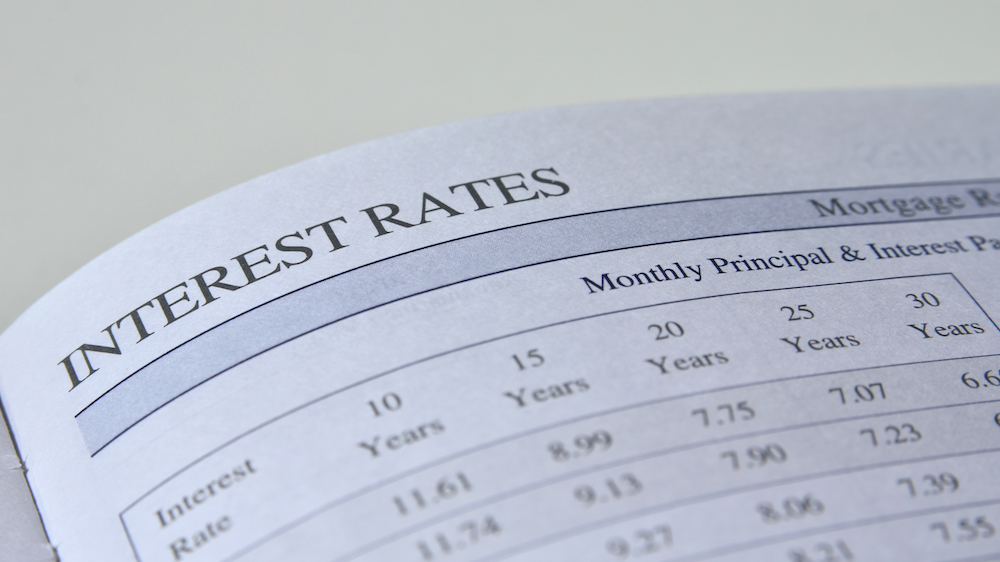
What Is A Jumbo Loan: The Money Behind Expensive Real Estate

If you've outgrown your current rental and are looking to relocate to an area with higher-value properties, a conforming loan may not satisfy your vision – however, a jumbo loan can exceed the borrowing limits of those that have to conform with Fannie Mae and Freddie Mac guidelines.
If you’re considering taking on a jumbo loan then read on! This guide will outline how they work, what it takes to qualify, and how they differ from other loans.
How A Jumbo Loan Works
Unlike conforming loans, which adhere to the standards of Fannie Mae and Freddie Mac enterprises, jumbo mortgage loans exceed the limits determined by the Federal Housing Finance Agency (FHFA). In most parts of the U.S., the conforming loan limit lies at $510,400. It should also be noted that higher cost of living in areas such as Alaska, Hawaii, and Guam, can inflate the value of a jumbo mortgage.
Because they aren't backed by Fannie Mae or Freddie Mac, jumbo loans pose a greater risk for lenders, who mitigate them by enforcing stricter criteria for eligibility.
When It Makes Sense To Get A Jumbo Loan
Qualifying for a jumbo loan is no easy feat and won’t suit all types of homeowners. Purchasing a jumbo loan is practical if:
You've Exceeded Conforming Loan Limits
We previously mentioned the average conforming loan limit across the majority of states in America. However, some regions in the Northeast and West Coast may offer limits up to $765,700. If the property you're after overreaches, you may need to pursue a jumbo loan instead.
You Have Excellent Financial Resources
Jumbo loans come with a price – and it isn't cheap. To qualify, you'll need to be a high-income earner raking in anything between $250,000 to $500,000 a year. Lenders may also expect a sizable credit score of 700 or higher and a debt-to-income ratio of below 45%. To prove your wealth, you'll need to obtain various documentation such as tax returns, W-2s, pay stubs, bank statements, or information regarding any active investment accounts.
You Want To Make A Luxury Purchase
Jumbo loans are most commonly used to finance homes in affluent subdivisions, although can be leveraged to purchase other extravagant investments such as vehicles or other types of property.
You Have Assets In Reserve
Some lenders will ask that you provide documentation of cash reserves to satisfy a full year of mortgage payments. Ideally, you'll be able to shoulder a down payment of 20% or higher and validate your ability to cover at least six months of your loan payment.

When Should You Avoid A Jumbo Loan?
As we alluded to earlier, a jumbo loan isn't for everyone. If you're barely able to meet the painstaking requirements attached to one, you may be better off taking out a conforming loan instead. Even with an excellent credit score, soaring interest rates can be difficult to meet, especially if you have your sights set on an exceptionally pricey home.
If you can afford a jumbo loan but feel you aren't ready to invest in a property for the long haul, reselling an extravagant home can prove a tough job if the market is slow. Not to mention, undergoing the mortgage appraisal process can be incredibly draining.
Jumbo Loans vs Conforming Loans
When comparing jumbo mortgages to conforming loans, you'll probably notice that the main difference lies in the size of the loan. Other differentiators include:
- A larger down payment of roughly 10% to 20%, which can take years (or even decades) to save up for, putting you at risk of depleting your emergency funds and savings if you can't support the amount with dispensable cash.
- A higher interest rate, which is dictated by your credit score, DTI, down payment, and term length. The interest rate you end up sustaining might fluctuate according to market conditions but are usually 0.5% to 1% higher than the interest rate attached to a conforming loan.
- Expensive closing costs that may be the result of extra qualifying steps or a financial bump in the road. If you're struggling to meet your monthly payments or see a drop in the value of your home, it may be nearly impossible to refinance and restore any lost equity.

The Benefits Of A Jumbo Mortgage
The greatest advantage of a jumbo rate mortgage is a borrower's ability to obtain more loan money than they would with conforming loans. However, they also serve other benefits such as the following.
Ability To Exceed Limitations
Whether you're on the market for a highly competitive property or looking to obtain the home of your dreams, having access to a larger loan amount can help you achieve that. Especially if you're after a multi-family unit, you can stand out as a serious contender against other high-earners competing for the land you want.
Flexibility
Borrowers love a flexible loan – jumbo mortgages are just that. With ample leeway to select the terms that best suit your financial capabilities, you can opt for a 30-year loan at a fixed mortgage jumbo rate or settle on an adjustable-rate that may better work to your advantage.
The Drawbacks Of A Jumbo Mortgage
Naturally, anything involving a highly significant amount of cash won't come without its disadvantages. If your heart is set on a jumbo loan, you'll want to brace yourself for the following pitfalls.
Greater Potential Risks
Markets can crash just as easily as they flourish. If your property suddenly drops in value, you can lose a large amount of equity, making it nearly impossible to refinance if you need to. If you're locked into a fixed interest rate, transitioning your loan over to a lender with lower interest rates is highly unlikely.
High-Cost Interest Rates
To protect lenders offering jumbo loans, borrowers may be charged anywhere from 0.5% to 1.5% higher on mortgage rates tied to traditional loans. The only way to trickle your rate down to a more affordable number is to put down a larger down payment.
Stricter Requirements
Half the work that goes into securing jumbo loans is being able to prove that you're a creditworthy individual. Demonstrating substantial financial assets is more than just having a high credit score – you'll need to provide a mountain of paperwork to authenticate your income, which a lender will have to approve in the first place. Moreover, you may be asked to set aside 12 months' worth of mortgage payments to qualify for the loan at all.
Tips For Securing A Jumbo Loan
Though seemingly impossible, landing a jumbo loan is achievable for those who are disciplined and committed. If you're finding your footing, start with the following tips.
- Shop multiple lenders and offers. As with any attractive product, don't settle for the first mortgage that draws you in. Even a one-point difference in your interest rate can change the entire foundation of your mortgage terms. Never settle for one option – shop around for at least three.
- Get your target home appraised in advance. If you're absolutely certain about the home in question, have it evaluated by a professional home appraiser. Remember, the value of a property can carry weight in your final loan terms.
- Keep an eye out for your credit. If you've just barely qualified for a jumbo mortgage and can still work towards improving your FICO score, do it. If you're seesawing between 680 and 685, for example, you can boost your ratings by scanning for errors and correcting discrepancies with your credit card provider. If you have any existing debts, pay them off as soon as you can.
- Get your documents in order. As formerly stated, jumbo mortgages are paperwork-heavy. Some lenders may request tax returns dating two years prior to your application date, proof of employment, and even up to 90 days' worth of bank statements. If you don't have room for a mountain of documents in your living area, make some.
- Prepare a cash reserve. Not all jumbo mortgages will require an ample cash reserve – but you'll want to prepare for it anyway. Funnel at least 6 to 12 months' worth of mortgages into a bank savings account and request the appropriate documentation to present to your lender.

Conclusion
Though jumbo loans do have their benefits, applying for one can make for risky business. If you’re in need of expert loan advice, get in touch with Wesley LLC. We can help you figure out if a jumbo loan is the right choice for you!